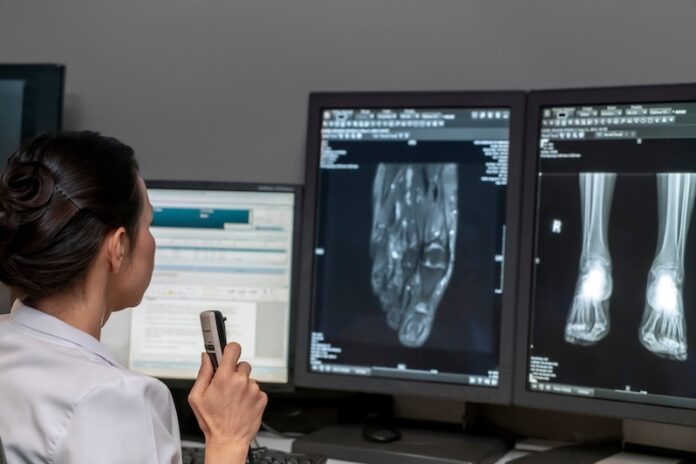As the development of artificial intelligence (AI) continues to accelerate in the healthcare sector, it is becoming increasingly evident that these cutting-edge solutions hold immense potential for enhancing radiology and the broader healthcare sector. Not only can AI significantly improve workflows, thereby boosting productivity, but it also presents a viable solution for addressing the ongoing challenge of providing comprehensive health coverage and expanding access to medical imaging for Canadians.
A variety of AI solutions have found their way into radiology departments both within Canada and internationally. The extent of AI solutions being utilized in Canada is an unknown. Nevertheless, the CAR supports the incorporation of these technologies within radiology departments and clinics across the country, provided there are proper checks and balances which are contingent on human oversight.
While deploying AI solutions, it is important to proceed with caution given their evolving learning capabilities. The CAR strongly believes that there needs to be national oversight for AI applications, particularly as they relate to patient care. Best practices, rules, and regulations are necessary and should be monitored at a federal level. Despite the numerous benefits that AI could bring to patients and healthcare professionals, we must also remain cognizant of the potential risks associated with its application.
The CAR’s Response to AI
In response to the introduction of this new type of technology in healthcare, the CAR has set up a Radiology AI Validation Network (RAIVN). This assembly consists of AI specialists in the field of radiology tasked with assisting with post-market assessment of AI applications. As a resource, RAIVN would serve as the national body responsible for evaluating the performance of these technologies and pre-identifying any potential issues that may affect patient care. While this program is still in its infancy, we are hopeful its integration will be smoothly executed in the months ahead. We also believe that the RAIVN framework can and should be applied more generally to all AI based solutions in healthcare.
Dr. Jaron Chong, Chair of the CAR’s Standing Committee on Artificial Intelligence, is leading the charge on the RAIVN project. He has authored many publications on AI and has also been a contributing author on CAR’s five white papers focused on AI. Dr. Chong also sits on Health Canada’s Scientific Advisory Committee on Digital Health Technologies (DHT). He is an Assistant Professor at the Department of Medical Imaging at Western University and completed his diagnostic radiology residency training at McGill University with an Abdominal Imaging fellowship at Yale New-Haven Hospital and a master’s in health informatics at the University of Toronto. His clinical interests include cross-sectional abdominal imaging, Abdominal/GI oncologic imaging in MRI and CT modalities, with research interests in the appropriate utilization of medical imaging and AI-assisted augmented radiology.
“AI has the capacity to impact healthcare delivery in a positive way. There are currently many AI applications specific to radiology that show promise in terms of enhancing workflows and streamlining medical imaging procedures,” said Dr. Chong. “Many of these technologies have been integrated into healthcare systems outside of Canada with favourable results. However, before broadly introducing them to the Canadian healthcare system, it is essential that a national regulatory framework has been developed which includes expert oversight to maximize safety and value.”
The CAR has been in discussions with the Ministry of Innovation, Science, Economics and Development Canada and Health Canada regarding RAIVN and is exploring how RAIVN can assist these federal branches of government in the validation process of emerging technologies.




